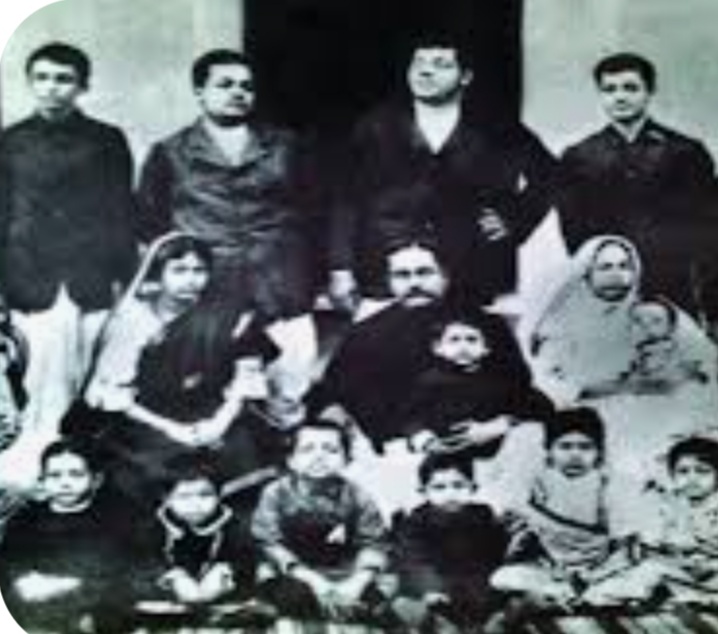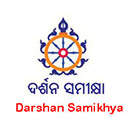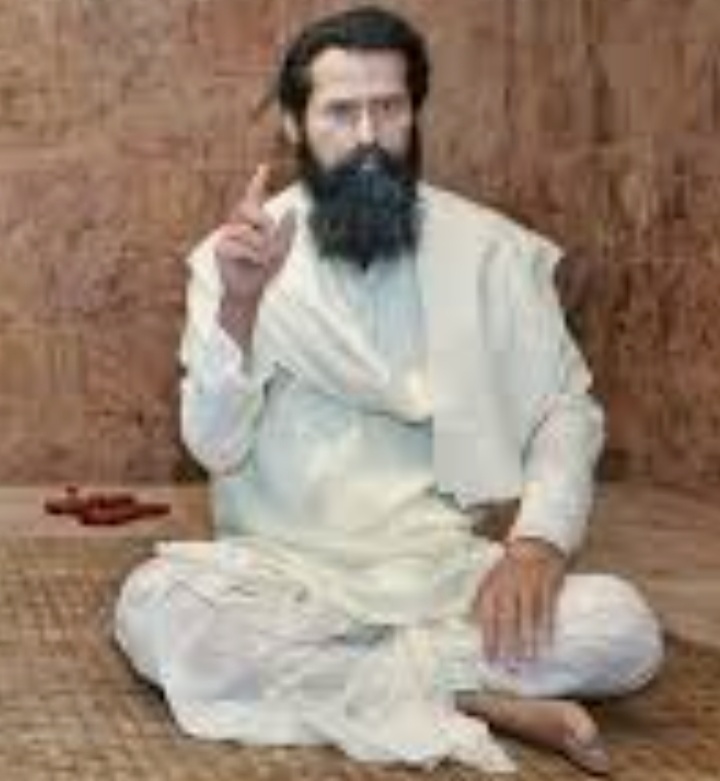The Jewel of Utkal, Utkalmani Pandit Gopabandhu Das, was in the true sense a jewel and friend of the poor. Born on 9th October 1877, in Suando Village near Sakshigopal of Puri District,
He started his education career in Vernacular language initially at Rupadeipur minor school and then at Puri Zilla School. Gopabandhu had lost his mother Swarnamayee Devi after few months of his birth and also lost his father Daitari Dash while he was a student at Ravenshaw College. Inspite of his great personal loss, he had written poems like “Abakasha Chinta”, Go-mahatmay, Nachiketa upakhyana, Karakabita, Dharmapada and “Bandira Atmakatha”
As a student Gopabandhu’s literary fervor was excellent. During those days the Odia literary world was divided between the ancient, The Indradhanu and the modernists, The Bijuli. Gopabandhu realized that a nation as well as its literature live by their tradition. He believed that a national superstructure of the present can endure only if it is based upon the solid foundations of the national heritage. His satirical poem in The Indradhanu led to an ugly incident and punishment meted out by the Inspector of schools. Gopabandhu refused to apologize for such writing in lieu of punishment.
He attended Ravenshaw College, Cuttack despite his father’s recent death. During this period, he started Kartavya Bodhini Samiti (Duty Awakening Society) to encourage his friends to do their duty as citizens and take on social, economic and political problems. He was leading a team to aid flood victims, when he heard of his son’s serious illness but remained to serve the locals rather than return home to his son. His social services as a young man prevented this brilliant student from completing his undergraduate degree, although he later earned his BL, LLB with distinction at Calcutta University.

Utkalmani’s statue in Kolkata
In Kolkata, he started a labor union and set up night schools for Odia laborers and cooks. He came in contact with the Vande Mataram group which infused him with the Swadeshi spirit. His new mission was to reform society through improving the educational system. His wife died when he was only twenty-eight, and his three sons had already died. He left his daughters with his elder brother, and gave his brother his share of the family property in the village to support them.
Educational Reforms
After coming back from Kolkata, he worked as a government lawyer in Mayurbhanj court. Law did not interest him, so he gave up his practice and worked for the welfare of the people. He believed that only education can improve and develop society so in August 1909, he established a school in Satyabadi Bana Vidyalaya, near Puri. The objective of the institution was to spread idealism, patriotism, nationalism and intellectual pursuits among its students in a Gurukul environment. This experiment was opposed by orthodox Brahmins, who did not wish their children consorting with children of other castes, but the school remained. Gopabandhu Dash was instrumental in developing the education and society of Odisha. In 1921 this school was renamed National School. Several other individuals started similar institutions. His initiative in inviting public saw a remarkable transformation in Ravenshaw College, which was under financial crisis. Because of his affection for Indian culture, he established a Sanskrit college at the holy city of Puri.
Professional career
Pandit Gopabandhu Das arrived at his first job as a teacher in Nilagiri but afterward he left the assignment to become a lawyer. Graduating in law from Calcutta University, he set up his practice at his home district of Puri. Later he moved to the High court in Cuttack. During this period he was also appointed as a Government lawyer in Mayurbhanj court. After had a consummate legal practice Pundit Gopabandhu Das decided to quit the profession for social work and mass education. He strongly believed that education had a huge role to play for the upliftment of the society. In his mission to work for a better society and welfare of the common masses he established a school at a place called Satyabadi in 1909. This effort of Pundit Gopabandhu Das played a key role to improve the education and social welfare of Odisha. Hugely motivated by the positive response he received from the people of Odisha the school was converted into a high school the following year. The school secured affiliation from the Calcutta University and for the first time matriculation exam was held in the year of 1914. The school further secured an affiliation from Patna University in 1917. Due to soaring success the school was converted to a National school in the year 1921. Unfortunately the school was
Contribution to Journalism
He was instrumental in making Odia journalism suitable for the common man. He published a monthly magazine called Satyabadi in 1914. Later on 4 October 1919, the auspicious day of Vijayadashami he started the weekly newspaper The Samaj, which became the most popular daily news paper of Odisha. He served as editor “Samaj” continuously until his death. Later he donated The Samaja to Lok Sevak Mandal after his death. Handed over to the Lok Sevak Mandal, New Delhi through the will of Pandit Gopabandhu Das, the Samaja is today managed by Servants of the People Society. About 80 percent of the net profit of The Samaja is spent for the welfare activities of the people of Odisha by way of extending stipend to students in need, aiding patients and victims of natural calamities and through miscellaneous charities and donations. A large sum goes to the Gopabandhu Institute of Medical Science and Research at Athgarh, Odisha.
Gopabandhu was a nationalistic warrior by heart. He wrote many poems & novels encouraging the younger generation to serve for national integration. He once said, “Pachha ghuncha nahin veerara jatake, na mare se kebe parana atanke”, meaning a yodha never flees, nor fears death. While in Hazaribagh Jail from 1922–1924, he wrote a heart touching novel called “Bandira Atmakatha” (The Biography of a Prisoner) expressing his love for people of Odisha. There he has written “Misu mora deha e desha matire, desabasi chali jaantu pethire | desara swarajya pathe jete gada, misu tahin padi mora mansa hada||” (“Let my body mingle in the dust of my motherland and let my countrymen walk across it; and let my flesh and bones fill in the potholes of my country’s self-independence) whose meaning is, let my body merge in the soil of the nation and help my country men walk on me, let each hole in the path of development of the nation be filled with my flesh.
Death
Gopabandhu fell ill while attending a fundraiser ceremony in Lahore for the flood victims of Odisha, of which he never recovered. He died of prolonged illness on 17 June 1928. But his sacrifice still ignites many hearts to dedicate their soul & body for the nation.


